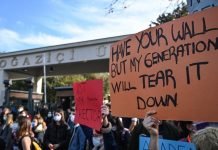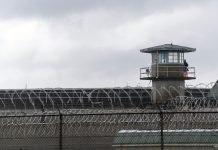Reza Zarrab, the US prosecution’s ‘star witness’, who is a Turkish-Iranian gold trader whose prosecution in Manhattan has drawn sharp criticism from Turkey’s autocratic President Recep Tayyip Erdoğan, implicated Erdoğan in a scheme to evade US sanctions on Iran in a federal trial on Thursday.
Erdoğan personally ordered that two Turkish banks be allowed to participate in an oil-for-gold scheme that violated United States sanctions on Iran, according to testimony by Reza Zarrab. Thus, Zarrab has implicated Erdoğan for the first time in the sanctions busting, which first surfaced when the Turkish police uncovered the activity in 2013 — only to have their investigation quashed by Erdoğan’s government.

According to a report by NBC News, Zarrab was shown the transcript of a 2012 phone call between himself and an employee that was caught on a wiretap in which they discussed two other Turkish banks that he told the court “wanted to do Iranian business” using the same system he devised for Halkbank.
“The prime minister gave orders to Ziraat Bank and Vakıf Bank as well,” Zarrab said on the phone call, referring to the other banks.
The US Prosecutor Sidhardha Kamaraju asked Zarrab what he meant by that, and he said the country’s then-Economy Minister Zafer Çağlayan, told him the two banks were to move Iranian money, too. “Mr. Çağlayan had told me Mr. Prime Minister has given approval,” Zarrab told the jury. Asked by Kamaraju, who was prime minister of the country at the time, Zarrab testified: Recep Tayyip Erdoğan.
Erdoğan was Turkey’s prime minister from 2003 to 2014 before becoming the country’s first directly elected president. There was a stir in the courtroom, which was packed with Turkish media covering the Atilla trial.
For years, Erdoğan has scrambled to suppress inquiries into the money-laundering scheme and bribery payments to senior Turkish officials that accompanied it. The case began as a corruption investigation in Turkey in 2013, but Erdoğan quashed it amid a purge of investigators and prosecutors. Since US prosecutors took up the case in New York, Erdoğan has repeatedly protested through diplomatic channels and asked senior US officials to drop it.
Erdoğan has consistently condemned the American investigation into the scheme, raising the matter repeatedly with American officials, including US President Donal Trump in September 2017. As recently as Thursday, before Zarrab told his story to jurors in Federal District Court in New York, Erdoğan said, “We did not breach the sanctions.”
“Whatever the verdict is, we did the right thing,” he said at a closed meeting with his deputies, Turkish state media reported. “We have never made commitments to the US on our energy ties with Iran. He added that “The world is not only about the US.” “We also have trade and energy relations with Iran,” said Erdoğan.

Asked to explain further, Zarrab told the court: “What I’m saying is that the prime minister of that time, Recep Tayyip Erdoğan, and the minister of the treasury, Ali Babacan, had given an order for them to start doing this trade. By them, I mean the banks.”

“Indian clients would first create an account at Halkbank and then the buyer of crude oil in India would deposit money directly into the account. Funds would then go to another Turkish bank and Zarrab would take it from there,” he said.
On Wednesday, Zarrab testified that he had paid bribes of 45 million to 50 million euros and $7 million to Çağlayan; he said Çağlayan asked for 50 percent of the profits generated by the scheme, which was being run through Halkbank.
Zarrab also testified on Thursday that Süleyman Aslan, then the top executive at Halkbank, had sought a meeting at his old office. Aslan said he was getting nervous about the money-laundering scheme, Zarrab said. He said he interpreted the conversation as a request for a bribe. Zarrab said Aslan told him the US had warned him repeatedly about the Iranian transactions.
“Süleyman Aslan said he had some personal concerns and issues,” Zarrab testified. “That he was taking a lot of risk and that he was feeling uncomfortable about this. He expressed his concern, and he expressed he wanted to ensure his future in some way. And he stated his expectations.” Zarrab added later: “He was asking for money.”
The New York Times has also reported that Zarrab said on Thursday that he had also paid bribes to Süleyman Aslan, who was critical to their scheme, he said. Çağlayan and Aslan have also been charged with participating in the sanctions evasion scheme and remain at large, prosecutors have said.
Even before Wednesday’s testimony the trial had infuriated Turkish authorities, with officials claiming that US prosecutors are doing the bidding of Erdoğan’s rival, US-based Turkish-Muslim scholar Fethullah Gülen, who is in self-imposed exile in Pennsylvania.
“What (Gülen movement) was not able to achieve here, it is trying to achieve there (New York),” Deputy Prime Minister Bekir Bozdağ told a Turkish news agency on Thursday. “What justice can we expect from such a court?” he said, claiming that similar accusations against the government were made in the December 2013 corruption probes.
“This is just the beginning. We will hear more such slanders as we go to elections in 2019,” he said, referring to presidential and parliamentary polls due to be held. “But whatever they do, they can never eliminate the respect and love of the Turkish people for our president,” added Bozdağ.
AKP spokesman Mahir Ünal also claimed that Zarrab was being kept as a “hostage” in the US and was being forced to testify against Turkey and the Turkish government.
“We observe that some people’s hopes are rising over accusations being voiced by a man being strangely held as a hostage. Our response to them is that we will not remain idle against efforts to corner us economically and politically,” Ünal told reporters. “The whole nation sees what’s being done against Turkey. Everything is obvious. Turkey will overcome this as it did in the past,” he added.
Meanwhile, Turkey’s main opposition Republican People’s Party (CHP) leader Kemal Kılıçdaroğlu called on the government to “resign,” amid Zarrab’s testimony about “$45 million or $50 million” bribes. “Zarrab was occupying a seat in the state protocol until yesterday. They called him a charitable businessman. Now he has become their foe. Why? Because he has started confessing,” Kılıçdaroğlu said.
The CHP leader denied that the case in New York is a “national issue” for Turkey, saying it is simply about “corruption and theft.” “What saddens me most is the fact that all this happened in Turkey and we all know about it, but the trial is taking place in the US. Our ministers and those who took bribes are here but we cannot try them in courts here,” he added.
Turkey’s Vakıfbank claimed on Friday that it had never had any interest or involvement whatsoever in any of the processes mentioned in the US trial of a Turkish bank executive accused of helping to launder money for Iran.
“VakıfBank has always acted in compliance with laws and related legislations and shown utmost care and diligence to act in accordance with the laws and the related legislations,” the bank said in a statement to the İstanbul stock exchange. Shares of Vakıfbank were down 1,6 percent in early trade in İstanbul.

According to local media reports, Zarrab also testified that he used Denizbank for some transactions. Denizbank disputed the reported allegations.“Our transactions only revolved around buying and selling gold domestically, and there were no foreign transactions,” it said in a statement. “Our bank… has had no dealings with the Royal Shipping group owned by Reza Zarrab.”
Turkey’s banking regulator last month denied a local media report that six Turkish lenders could face substantial fines from the United States over alleged violations of Iran sanctions.
















